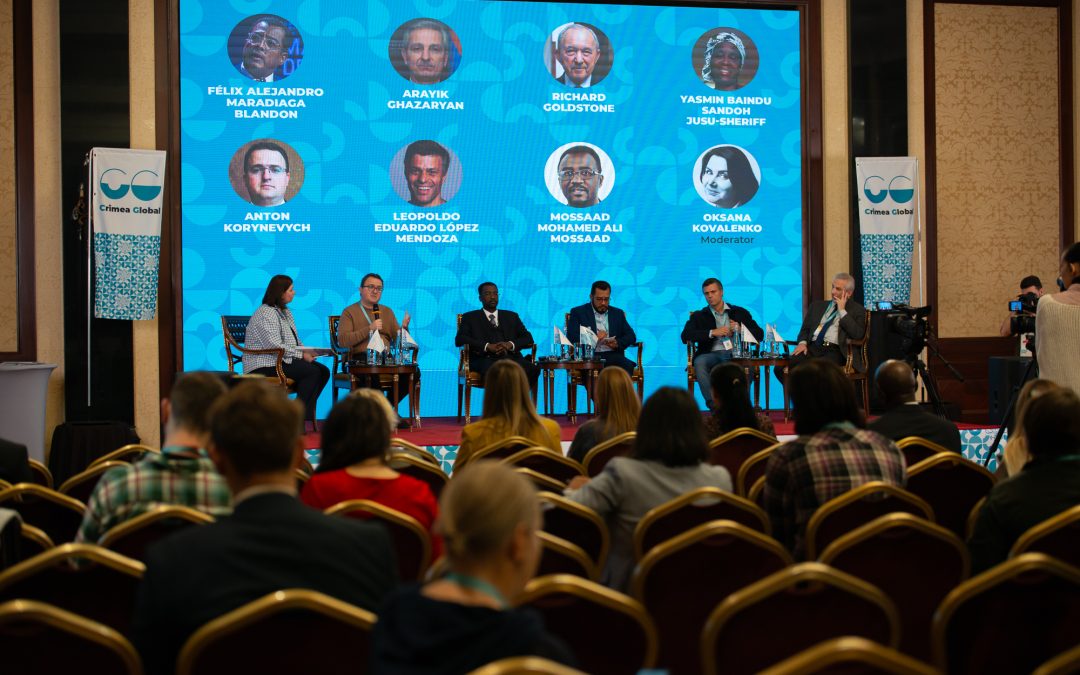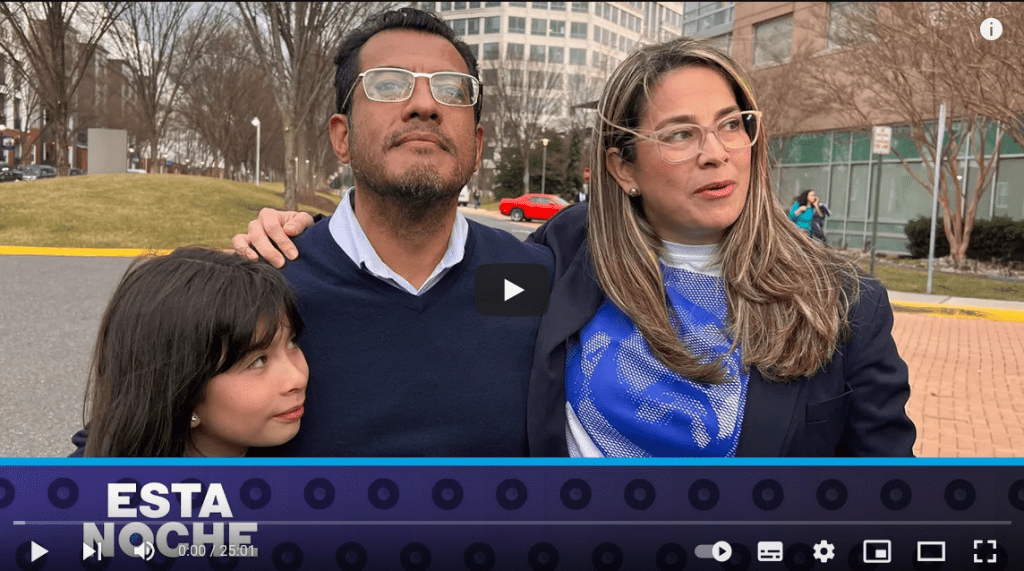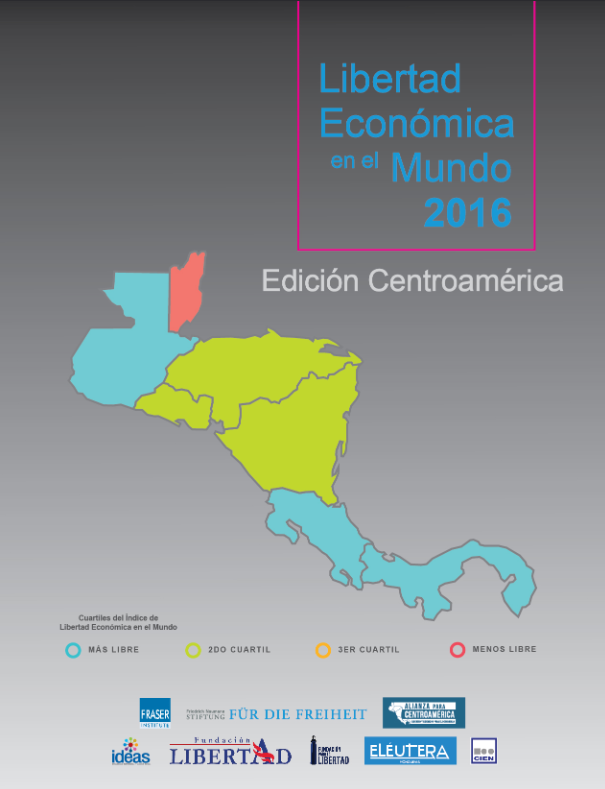NOTA DE PRENSA
The second day of the international conference “Crimea Global. Understanding Ukraine through the South” began with the fourth panel discussion on “The New International Legal Order: How to find tools to protect peace and security in the future”.
Crimea, 15 de octubre de 2023.
The second day of the international conference “Crimea Global. Understanding Ukraine through the South” began with the fourth panel discussion on “The New International Legal Order: How to find tools to protect peace and security in the future”.
The speakers were: Felix Maradiaga, academician, former presidential candidate and President of the Nicaraguan Freedom Foundation; Anton Korynevych, Ambassador-at-Large of the Ministry of Foreign Affairs of Ukraine, Ukrainian lawyer specialising in public international law, international humanitarian law and international criminal law; Leopoldo Lopez, Venezuelan political leader, pro-democracy activist and Sakharov Prize winner; Mossaad Mohamed Ali Mossaad, Executive Director of the African Centre for Justice and Peace Studies (ACJPS) from Sudan; and Araik Ghazaryan, Armenian human rights activist.
Richard Goldstone, a retired judge of the Constitutional Court of the Republic of South Africa and former Chief Prosecutor of the International Criminal Tribunals for the former Yugoslavia and Rwanda, joined the discussion online.
The discussion was moderated by Oksana Kovalenko.
Mr Anton Korynevych started the discussion by stating that, unfortunately, the current international law is not enough to ensure justice and global security. Mr Korynevych recalled the seventh point of President Zelenskyy’s Formula for Peace, which provides for the establishment of a special tribunal for the crimes of Russian aggression against Ukraine, as well as the implementation of a mechanism for compensation for the damage caused to Ukraine as a result of the war started by Russia. Anton Korynevych spoke about the work that Ukraine is doing to ensure justice and bring Russia to justice. Due to Russia’s presence in the UN Security Council, Ukraine has to look for other ways to restore justice, so the Ukrainian side needs the support of as many countries as possible, including those in the Global South.
Richard Goldstone joined the discussion via video link and shared his view on the effectiveness of existing international law instruments in bringing Russia to justice. Mr Goldstone noted that Russia’s crimes against the Ukrainian people are extremely grave, so it is important that the investigation process has already begun, and that we are seeing real results of this process, such as the arrest warrant for Putin issued by the International Criminal Court.
A well-known Armenian human rights activist, Araik Ghazaryan, analysed the factors that contributed to the final ratification of the Rome Statute by the National Assembly of Armenia. Mr Ghazaryan noted that Armenia expects the International Criminal Court to prevent aggression on the territory of their country, including a possible attack by Russia.
The Russian side called the ratification of the statute a “hostile act” by Armenia, which is why, according to the human rights activist, Armenia seeks to use all possible tools to protect itself and prevent a possible Russian invasion. Also, after the final ratification of the statute, in case of Putin’s visit to Armenia, they will have the right to implement the arrest warrant issued by the International Criminal Court.
The Sudanese experience of implementing international law was shared by Mossaad Mohamed Ali Mossaad, who emphasised the difference between the ICC investigations in Sudan and in Ukraine. Mr Ali Mossad noted that the crimes against humanity in Sudan were committed on the orders of the highest authorities, who were able to obstruct the investigation by denying visas to prosecutors. That is why the investigation was carried out through other international organisations, and the collection of evidence and testimony lasted several years. In Ukraine, however, the process of investigating Russia’s crimes is faster, as the government actively cooperates with the International Criminal Court, providing all the necessary materials and evidence.
Mr Leopoldo Lopez shared his own experience of cooperation with the International Criminal Court, as it was he who initiated the process against the current President of Venezuela, under whose leadership many crimes against the country’s civilian population were committed. The people of Venezuela cannot rely on domestic justice, so they are forced to turn to international institutions and rely on external influence. Mr. Lopez noted that, unfortunately, due to the lack of tools for the implementation of international law, changes in Venezuela are only general, as dictators seek to protect their regime, so reforms are needed in this area.
Mr. Felix Maradiaga spoke about the need to create a “democratic ecosystem” as opposed to dictatorial regimes that cooperate and use the same tools to carry out their crimes. Using Putin as an example, Mr Maradiaga demonstrated that the face of dictatorship is changing. It is no longer just a “classic 60s dictator in a tank”, as Putin has spent the last twenty years reforming to legitimise his crimes and create a “legal facade”. Other dictators are following Putin’s example, so democratic forces need to introduce changes to counteract dictatorship. Mr Felix stressed the need to reform the UN Security Council, as it is unacceptable that Russia should have a veto after all the crimes it has committed against Ukrainians and other peoples.
Mr Maradaiga’s experience demonstrates the need to create new approaches to supporting democratic movements. Felix Maradiaga fought against the criminal regime in Nicaragua, for which he was imprisoned and later deprived of his citizenship. Mr Maradiaga said that the international community does not know how to deal with stateless people who have had similar experiences to his own. That is why it is necessary to cooperate with activists, various democratic movements and organisations.
Mr Feliks shared his memories from the time of his imprisonment, when he first learned about Russia’s invasion of Ukraine during interrogation. He noted that the military in Nicaragua who interrogated him were happy to hear the news of Russian aggression, admitting that they had trained with the Russians.
“Dictators have their own ecosystem,” said Mr Maradaiga, adding that criminal regimes train their people together, teach them intelligence, methods of pressure and persecution, and share their experience with each other. That is why Mr Felix believes that democratic forces should also act more decisively and work to create effective legal instruments that can ensure a secure world order.
Concluding the discussion, Anton Korynevych noted that it is obvious to all of us that the illegal attempt to annex Crimea is a violation of the international legal order. The lack of response to the grave violation of the UN Charter has created an opportunity for Russia to launch an aggressive war.
Mr Korynevych stressed the need to join forces to demonstrate that dictatorial regimes are responsible for their crimes, and thus, together with international partners, we need to prevent future conflicts and wars.
—
Original note in English:



